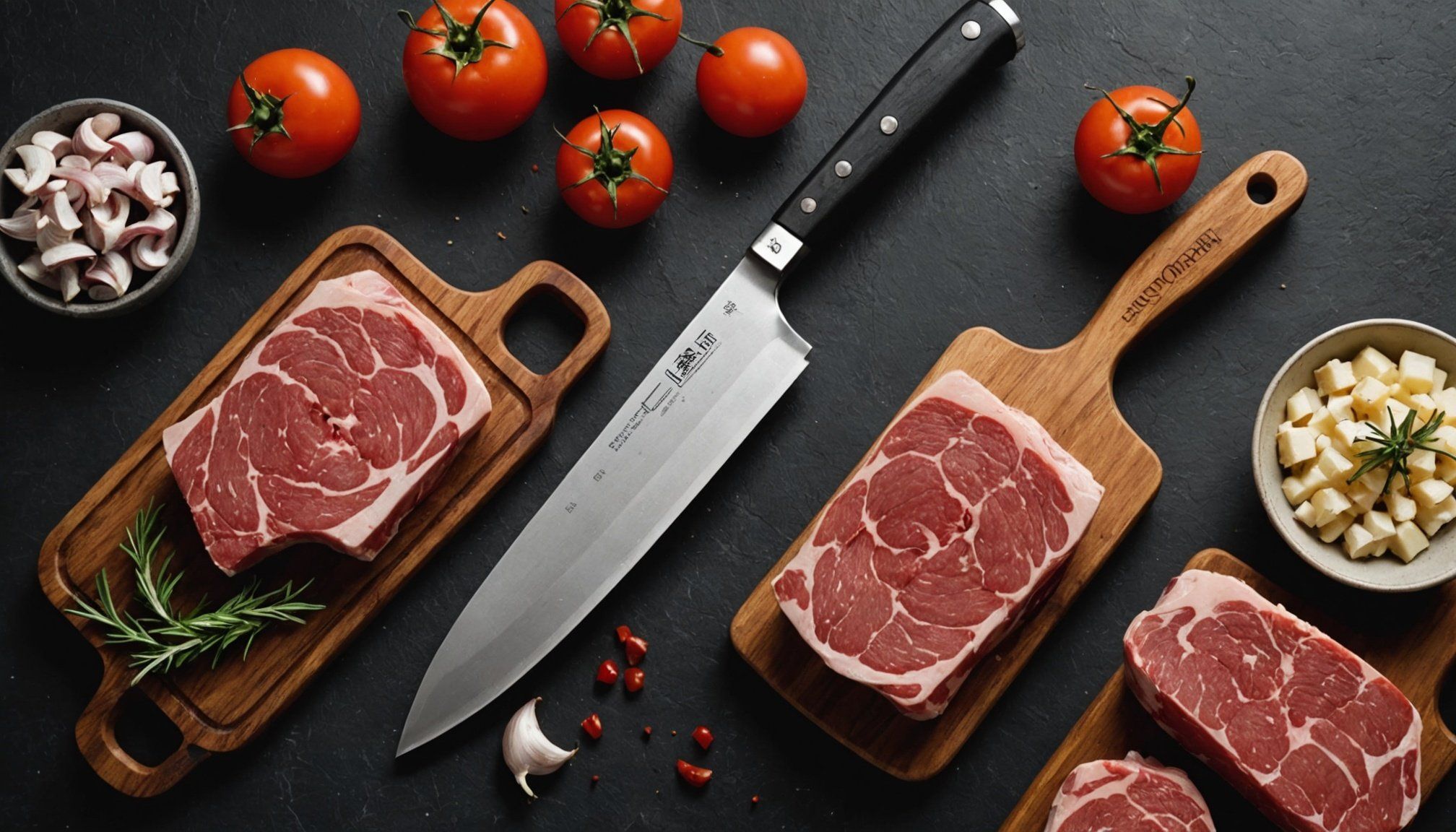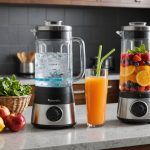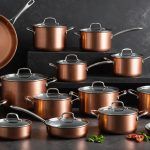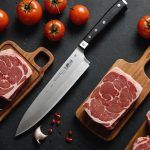Overview of Meat Tenderizers
Meat tenderizers are indispensable kitchen tools in both amateur and professional cooking. They perform by breaking down the tougher fibres of meat, thereby enhancing texture and flavour. Their use not only saves time in the cooking process but also elevates the eating experience by making meats more palatable and enjoyable.
Different types of meat tenderizers are available, each employing unique tenderizing methods. Mallet-style tenderizers physically pound the meat, making them ideal for tasks where flattening is as crucial as tenderizing. Blade tenderizers function through precise cuts, introducing holes into the meat to allow marinades to penetrate more deeply, facilitating better seasoning absorption.
Topic to read : Choosing the Perfect Stable Cake Stand for Your Multi-Tiered Masterpieces
Marinades offer a more subtle approach, involving soaking meat in a flavourful liquid. This not only tenderizes but also infuses the meat with diverse flavours, depending on the marinade ingredients used.
Choosing durable kitchen tools ensures sustainability and efficiency, making them a worthwhile investment. High-quality tenderizers are built to last and typically exhibit superior performance, streamlining the tenderizing process with minimal effort. A strong, reliable tenderizer can become a cornerstone of your kitchen arsenal, contributing significantly to hassle-free cooking.
Topic to read : Unlocking Spice Harmony: The Ultimate Guide to Efficiently Organizing Your Spice Drawer
Types of Meat Tenderizers
Selecting the right types of meat tenderizers can significantly affect the flavour and texture of your dishes. Each style offers distinct advantages, catering to different culinary needs. Whether manual or electric, these tenderizer variations are essential kitchen tools for both novice and seasoned cooks.
Manual Meat Tenderizers
Mallet-style tenderizers are a popular manual choice, available in various materials such as wood, metal, and plastic. Each material offers unique benefits: wood provides a lightweight option, metal is renowned for its durability, and plastic is easy to clean. Users recommend metal mallets for heavy-duty tasks due to their robustness and efficiency. Leading brands often ensure a good balance and comfortable grip, making them ideal for a range of meat types.
Electric Meat Tenderizers
Electric tenderizers provide a modern twist with increased efficiency and speed. They outshine manual options by reducing physical effort and ensuring consistent results. Ideal for larger quantities, these tools allow widespread tenderizing with precision. For home cooks, electric models from reputable brands balance performance and ease of use beautifully, making them a smart addition to the kitchen for those who frequently prepare meat.
Marinades and Natural Tenderizers
Marinades serve as a delightful introduction to meat tenderizing, offering a hands-off and flavourful method. Unlike physical tools, marinades rely on natural ingredients to gradually soften meat. The effectiveness of a marinade often hinges on its acidic or enzymatic components. Ingredients like lemon juice, vinegar, and yoghurt break down proteins, creating a tender texture. For those seeking natural tenderizers, fruits such as pineapple and papaya contain enzymes that can effectively tenderize meat.
Effective marinating practices require a careful balance of time and ingredients to maximise flavour and tenderness. Plan for at least 30 minutes for smaller cuts and up to 24 hours for larger ones. When marinating, always ensure the meat is fully submerged or coated, allowing for even distribution of flavours. Using a resealable bag helps in this process.
Moreover, for the best results, consider using a blade tenderizer before marinating. This step creates pathways for the marinade to infiltrate, enhancing the tenderizing effect. Whether you’re working with a simple lemon and herb mix or a complex spicy blend, understanding the role of marinades and selecting the right ingredients can transform a dish remarkably. Use these insights to bring flavour and tenderness to your meals.
Comparative Analysis of Materials
Selecting the right material for your meat tenderizer is crucial for both durability and effectiveness. Whether choosing stainless steel, plastic, or wood, each offers distinct advantages and drawbacks.
Stainless steel tenderizers are renowned for their durability and rust-resistant properties. They often feature serrated edges for efficient tenderizing, making them suitable for heavy-duty tasks. While steel’s longevity is unmatched, it can be heavy and more costly.
Plastic tenderizers, on the other hand, are lightweight and budget-friendly. They are easy to clean and less intimidating for casual cooks. However, they may not withstand repeated heavy use as well as other materials, leading to potential wear and tear over time.
Wooden tenderizers offer an eco-friendly option, often praised for their aesthetic appeal. They provide a good grip and are gentle on the meat, reducing the risk of tearing. Yet, wood requires more maintenance to avoid moisture damage and bacteria growth.
When considering durable tenderizers, it’s essential to weigh long-term value against initial cost. Investing in a quality kitchen tool crafted from robust materials ensures sustained performance and satisfaction for future culinary endeavors.
Buying Guide for Meat Tenderizers
When selecting the ideal meat tenderizer, it is crucial to focus on key features to ensure durability and effectiveness. Consider product features such as grip comfort, ease of use, and material quality. These features greatly influence performance and the overall cooking experience.
In terms of budget considerations, manual tenderizers, such as mallets, are often more affordable. However, they may require greater physical effort compared to electric variants. On the other hand, electric tenderizers provide an efficient, hands-free solution but typically demand a higher upfront investment. Assess your cooking habits to determine if the efficiency of an electric model justifies the cost.
For those prioritising durability, stainless steel options are renowned for their long-lasting properties. Supporting a sustainable kitchen, they often prove a worthwhile investment over time. Wooden and plastic alternatives can offer budget-friendly choices, albeit with varying degrees of wear resistance.
Reliable kitchen tools can be purchased from reputable culinary stores or online platforms specialising in high-quality culinary equipment. Researching user reviews and product testimonials can provide valuable insights into the functionality and longevity of prospective options. Remember, the right tenderizer will not only enhance your cooking endeavors but also become a lasting asset in your kitchen.
User Testimonials and Reviews
When selecting kitchen tools like meat tenderizers, examining user reviews can illuminate real-world performance, longevity, and customer satisfaction. Enthusiasts frequently express appreciation for tenderizers that showcase durability and ease of use, with stainless steel models often gaining the highest approval for their robustness and efficiency.
Real-world Experiences
Many users highlight the significance of a tenderizer’s construction, noting that stainless steel options tend to endure rigorous use without sacrificing efficiency. Such feedback often praises their ergonomic grips, which improve handling and reduce fatigue, making even prolonged tasks manageable. Conversely, some reviews suggest that plastic models, while budget-friendly, may lack longevity and resilience when subjected to frequent, intense usage, leading to premature wear or breakage.
Recommended Brands
Prominent brands distinguished by positive user recommendations include those blending performance and design in tenderizer variations. Brands like OXO and Jaccard are consistently celebrated for their intuitive designs and reliable functionality. Their products frequently boast high customer ratings, underscoring their reputation for crafting long-lasting and effective tenderizers. An analysis of satisfaction reviews often reveals these brands as top choices for both home cooks and culinary professionals in achieving exceptional meat preparation results.











